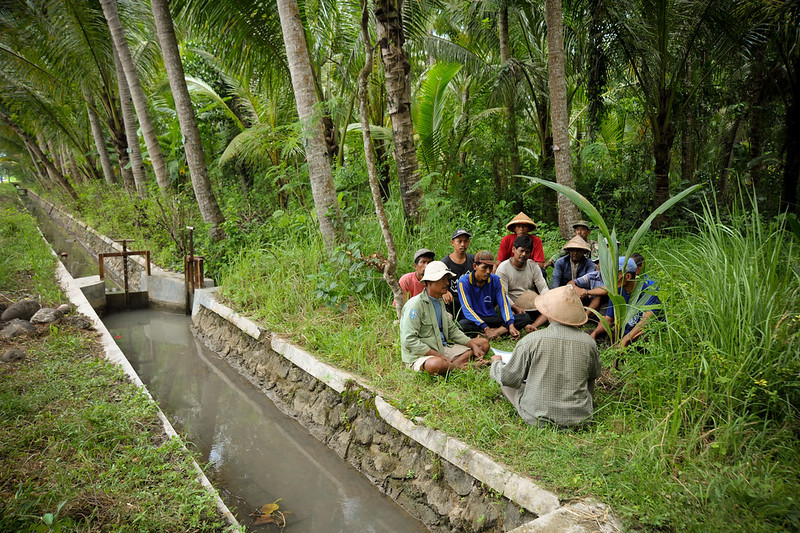Staple food firm still far from boosting investment: Experts
Experts say the government’s ability to create a competitive holding company would determine whether or not it could help attract investment in the agriculture industry.
Change Size

A
n upcoming state-owned staple food holding company is hoped to help boost agriculture industry investment in the medium to long term but experts say this critically hinges on the government’s ability to create a competitive company.
Nine state-owned enterprises (SOEs) plan to consolidate into the holding company under diversified food manufacturer PT Rajawali Nusantara Indonesia (RNI) by the third quarter of this year. The enterprise aims to improve Indonesia’s food security, farmers’ welfare and the agriculture industry’s modernity, which requires attracting investment.
Adhi Lukman, the chairman of the Indonesian Food and Beverage Producers Association (Gapmmi), said investors needed a clear roadmap over the holding company’s future business plan, including the specific role of each stakeholder, and needed to see that the company could sustain its operations.
“To achieve sustainability, the government needs to ensure that the staple food holding company is gradually synchronized with market mechanisms and not reliant on government policies,” he told The Jakarta Post on Wednesday.
Read also: State-owned staple food holding company to be formed by September
Attracting investment is key to modernizing Indonesia’s agriculture industry such as by introducing new technology, new farming methods and building related infrastructure.
Despite being an agriculture powerhouse, Indonesia has seen productivity decline for some crops, including the country’s main staple, rice, with productivity dropping 1.74 percent to 5.65 tons per ha in 2019 from 2018, according to data from Statistics Indonesia (BPS).
Andriko Noto Susanto, head of the center for food availability at the Food Security Agency (BKP), said stabilizing the supply and prices of 11 staple food products remained the government’s top priority.
“Investment in the agricultural sector will only improve if the implementation of the staple food holding company goes well [in terms of achieving those goals],” he said, also on Wednesday.
RNI declined to comment.
Investment in the agricultural sector is still relatively low. Foreign direct investment (FDI) in the sector from 2015 to 2019, for example, is only 3 to 7 percent of the total FDI, according to data compiled by the Center for Indonesian Policy Studies (CIPS).
Most of this investment went into the palm oil sector. Between 2003 and 2018, FDI in the palm oil sector reached US$13.9 billion. On the other hand, investment in other sectors, such as food crops and horticulture is still much lower, amounting to only $441 million, according to CIPS.
However, the establishment of SOEs staple food holding companies might reduce competition and limit private investment in the sector, the CIPS has said.
CIPS researcher Indra Setiawan said the government provided SOEs with capital injections, direct appointments and ease of bureaucracy, especially in land acquisition -- all of which were not given to private investors.
“This made private investors reluctant to get involved in the [domestic development] projects,” Indra said in a press release on July 16.
Read also: Increased investment, financing vital for growth of resilient agriculture sector: Experts
Strategic plans to improve corporate governance, including through an initial public offering (IPO) of the staple food holding firm, according to Indra, is key to reducing the negative impacts of the company’s possible domination in the sector.
Bustanul Arifin, an economist at the Institute for Development of Economics and Finance (Indef), said that establishing a holding company for SOEs in the staple food sector would upscale corporate performance, aiming for better efficiency.
Whether the establishment of a staple food holding company would hamper private investment in the agricultural sector is yet to be seen because the holding firm is yet to be formed.
However, he said this was unlikely because its market share was smaller than that of the State Logistics Agency (Bulog) -- the government institution tasked with securing national staple food stocks -- which has a roughly 6 to 8 percent market share.
“Theoretically and empirically, the assumption that agricultural investment would decline because of the establishment of a state-owned staple food holding company is unlikely,” Bustanul told The Jakarta Post on Wednesday.









